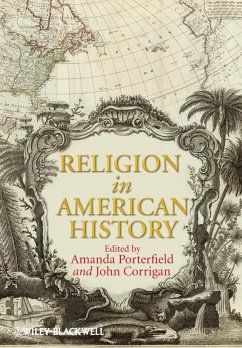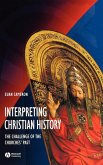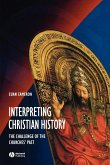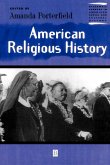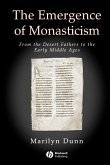Throughout the history of the United States, religion contributed both to forces of diversity, fragmentation, and factionalism, and also to the need for union and a sense of cultural belonging. Bringing together a team of the world's leading scholars in the field, this book provides a cutting edge interpretation about the place of religion in American history and its impact across a range of issues, from identity formation and politics, to race, gender, and class. With a crisp and engaging style, Religion in American History is a comprehensive introduction to the field of American religious history, ranging from the earliest contact between Europeans and Native Americans, right through to the present day. It is accessibly structured in to four key eras covering: exploration and encounter (1492-1676); the Atlantic world (1676-1802); American empire (1803-1898); and global reach (1898-present). Blending together a chronological approach with thematic organization, the chapters reference each other in ways that make possible interconnections between historical periods and among the different areas of religious life.
"At a time when the role of faith and belief in Americanlife is receiving renewed attention, this is a valuableintroduction to the nation's religious heritage." (Journal of Ecclesiastical History, 1 July 2012)
Porterfield and Corrigan have put together a stellar lineup ofscholars and collectively produced a classroom-usable book thatsimultaneously defines and stretches the field of Americanreligious history. Combining the best of historical and religiousstudies approaches, the themes of the chapters together with thechronological structure give readers fresh perspectives on theAmerican religious past."
-Paul Harvey, University of Colorado
"Amanda Porterfield and John Corrigan have both opened newpathways to the study of American religious history. This superbtext draws on that record of innovation, imagination, and insightto give us the story in a fresh and exciting way."
-Brooks Holifield, Emory University
"A remarkably imaginative reading of religion in Americanhistory, the essays in this volume provide fresh insights into oldmaterials and, at the same time, bring a wide array of newmaterials into view. This is, in short, an engaging tour throughone of the most lively, contested, and important parts of thenation's story."
-Grant Wacker, Duke University
Porterfield and Corrigan have put together a stellar lineup ofscholars and collectively produced a classroom-usable book thatsimultaneously defines and stretches the field of Americanreligious history. Combining the best of historical and religiousstudies approaches, the themes of the chapters together with thechronological structure give readers fresh perspectives on theAmerican religious past."
-Paul Harvey, University of Colorado
"Amanda Porterfield and John Corrigan have both opened newpathways to the study of American religious history. This superbtext draws on that record of innovation, imagination, and insightto give us the story in a fresh and exciting way."
-Brooks Holifield, Emory University
"A remarkably imaginative reading of religion in Americanhistory, the essays in this volume provide fresh insights into oldmaterials and, at the same time, bring a wide array of newmaterials into view. This is, in short, an engaging tour throughone of the most lively, contested, and important parts of thenation's story."
-Grant Wacker, Duke University

